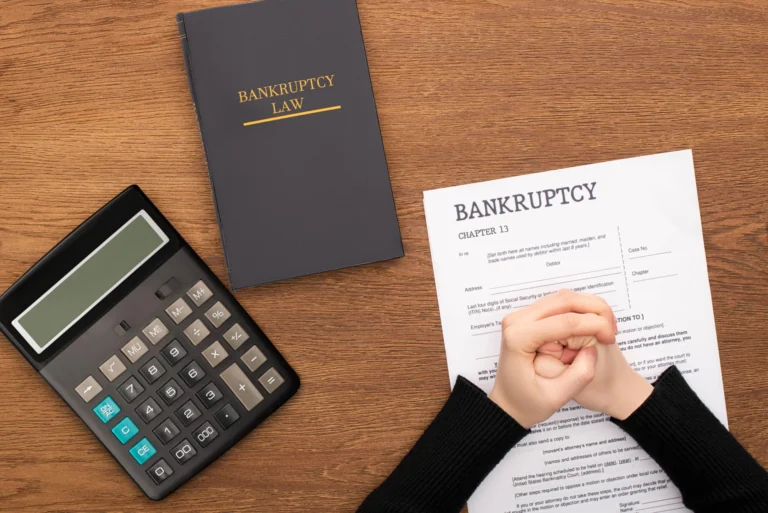Filing for bankruptcy can provide relief from overwhelming debt, but it also comes with serious consequences that can impact your financial future. Understanding the pros and cons of this legal process is crucial in determining if it’s the right choice for your situation. This article explores the key factors to help you make an informed decision.
Understanding Bankruptcy: A Brief Overview
Bankruptcy is a legal process that allows individuals or businesses to eliminate or restructure their debts under the protection of the federal bankruptcy court. It can provide a fresh start for those overwhelmed by financial difficulties, but it comes with significant consequences. Understanding what bankruptcy entails is crucial before deciding whether it’s the right path for you.
The Different Types of Bankruptcy: Chapter 7 vs. Chapter 13
Chapter 7 and Chapter 13 are the two most prevalent forms of bankruptcy filed by individuals. When filing for Chapter 7, often known as liquidation bankruptcy, non-exempt assets are sold to satisfy creditors. In contrast, Chapter 13, known as reorganization bankruptcy, allows you to keep your assets while repaying debts through a structured payment plan over three to five years. Knowing the differences between these chapters helps you determine which, if any, is suitable for your situation.
Pros of Filing for Bankruptcy: Immediate Relief from Debt
One of the most significant advantages of the Pros and Cons of Filing for Bankruptcy is the immediate relief from debt it provides. Once you file, an automatic stay is enacted, which stops creditors from calling, suing, or taking any further collection actions against you. This can provide much-needed breathing room, allowing you to focus on reorganizing your finances without constant harassment from creditors.
Cons of Filing for Bankruptcy: The Impact on Your Credit Score
A major downside of filing for bankruptcy is the impact on your credit score. A bankruptcy filing can stay on your credit report for up to ten years, significantly lowering your credit score and making it difficult to obtain new credit, loans, or even housing. This long-term effect on your financial credibility is a crucial factor to consider before filing.
Pros: Potential for a Fresh Financial Start
Bankruptcy can offer a fresh start by discharging most of your unsecured debts, such as credit card balances, medical bills, and personal loans. This discharge can free you from the burden of overwhelming debt, allowing you to rebuild your financial life with a clean slate. For many, this fresh start is worth the temporary setbacks in credit and financial reputation.
Cons: Loss of Property and Assets
Depending on the type of bankruptcy filed, you may lose some of your property and assets. In a Chapter 7 bankruptcy, non-exempt assets are sold to pay creditors, which can include your car, home, or other valuables. While Chapter 13 allows you to keep your assets, you must adhere to a strict repayment plan, which can still put a strain on your finances.
Pros: Legal Protection from Creditors
Filing for bankruptcy provides legal protection from creditors, known as the automatic stay. This prevents creditors from pursuing collection actions, such as wage garnishments, repossessions, and foreclosures. This legal protection can be particularly beneficial if you’re facing imminent actions that could further destabilize your financial situation.
Cons: Not All Debts Are Dischargeable
Debts like student loans, child support, alimony, and certain taxes usually remain even after filing for bankruptcy. This means that filing may not eliminate all of your financial obligations, and you will still be responsible for paying these non-dischargeable debts.
Alternatives to Bankruptcy: Exploring Other Options
Before deciding to file for bankruptcy, it’s worth exploring other alternatives that may be less damaging to your financial future. Options such as debt consolidation, credit counseling, debt settlement, or negotiating directly with creditors can sometimes provide relief without the long-term consequences of bankruptcy. Exploring these alternatives can help you make a more informed decision.
Is Bankruptcy the Right Choice for You? Factors to Consider
Deciding whether to file for bankruptcy is a personal decision that depends on various factors, including the amount of debt, your ability to repay, the type of debt, and your financial goals. It’s important to consider the pros and cons carefully, perhaps consulting with a financial advisor or bankruptcy attorney, to determine if it’s the best option for your situation. Ultimately, while bankruptcy can provide relief, it is a serious step that should be taken with caution and full awareness of its implications.
Conclusion
Filing for bankruptcy can offer a path out of unmanageable debt, but it comes with significant trade-offs, including a long-lasting impact on your credit and potential loss of assets. Weighing the pros and cons carefully and exploring all available options is essential in making the right decision for your financial future. Whether it’s the right choice for you depends on your unique circumstances, and professional guidance can be invaluable in navigating this complex decision.

